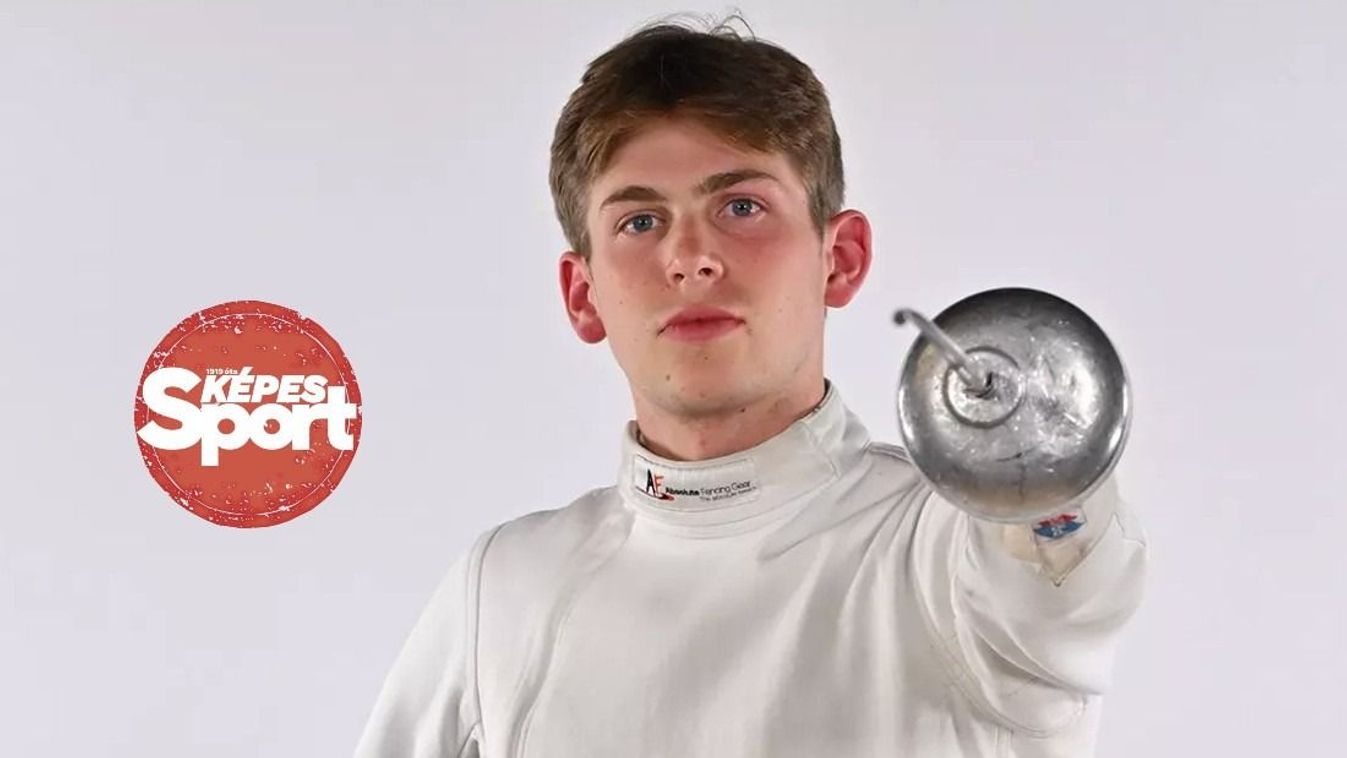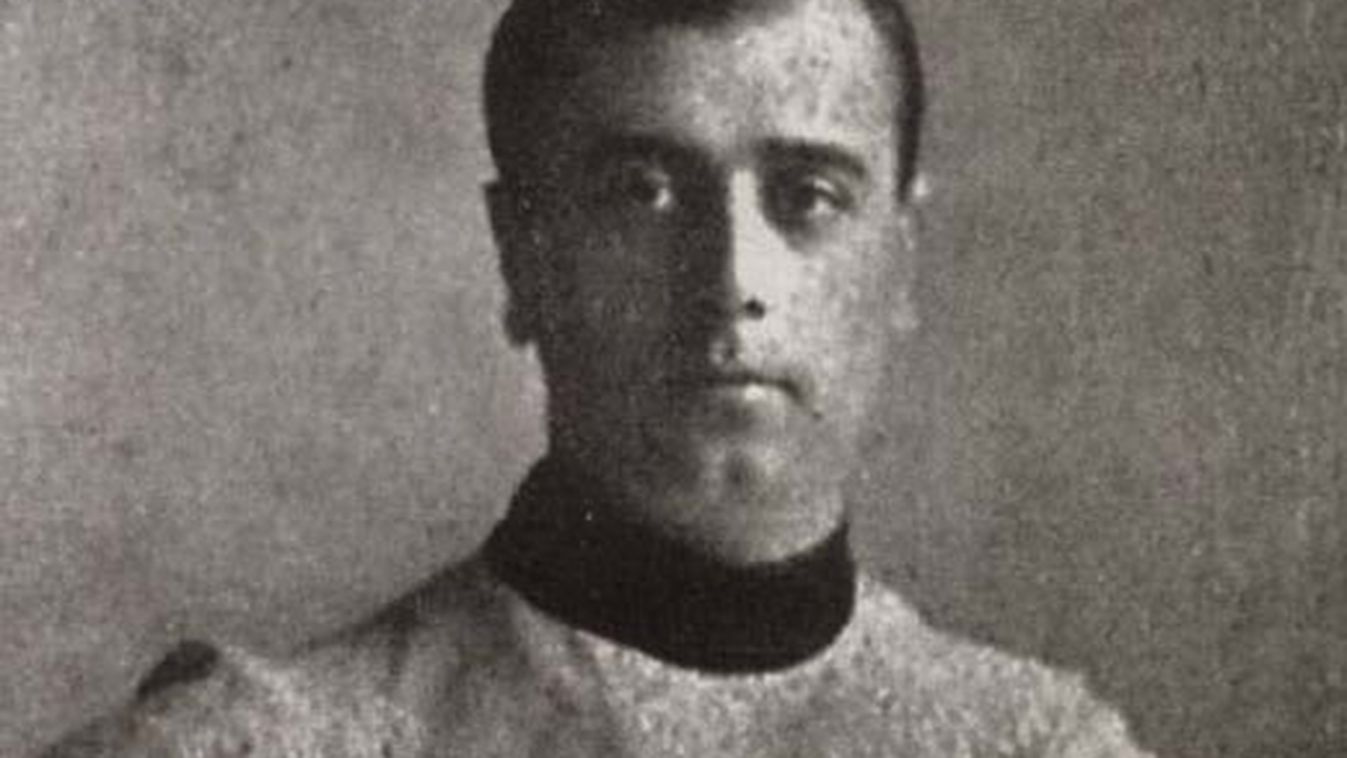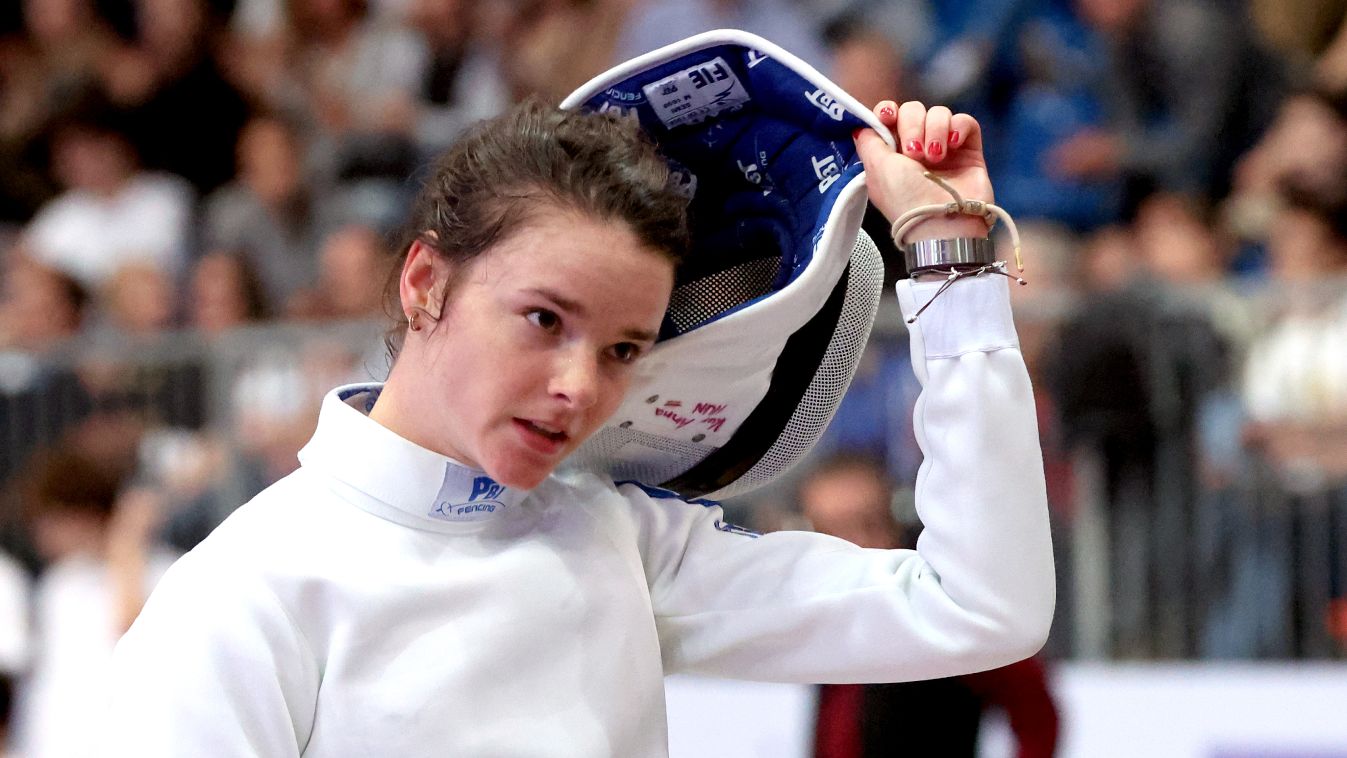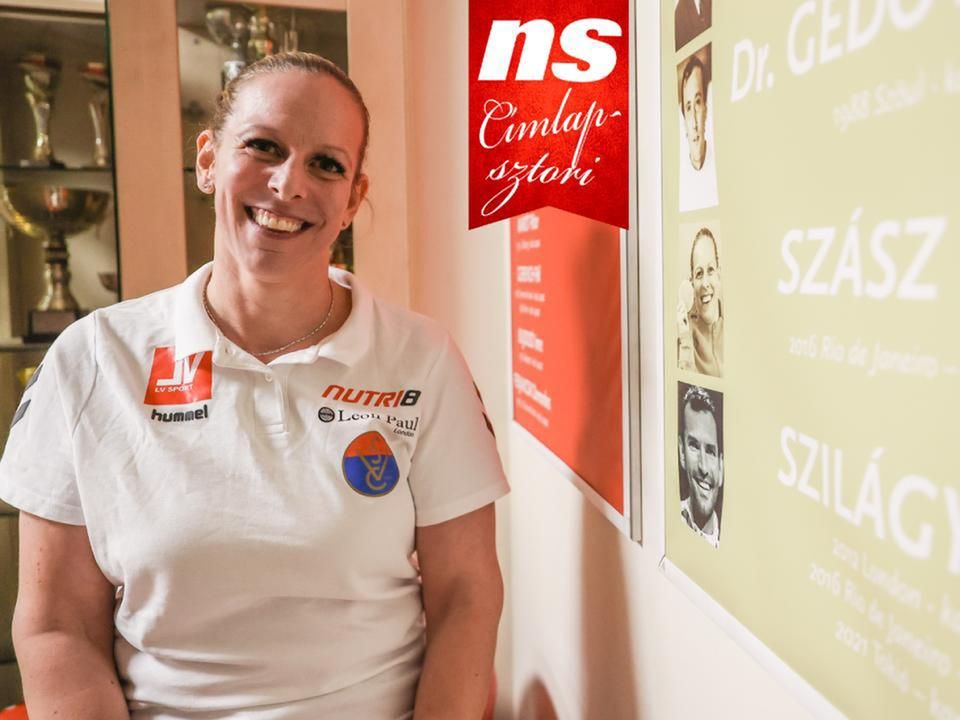
– Did you really swim as a child?
– Yes.
– So, how come you're not saying goodbye to the world of swimming pools?
– Because I didn't like it. It was too monotonous for me, so when I was told to come to practice in the mornings as well, I asked my parents: does anyone really think that I do this twice a day from now on when one feels like a lot already...? Then, in one of the PE classes, I fractured my hand, so I couldn't go to training. Therefore, I suggested I wouldn't really want to go back.
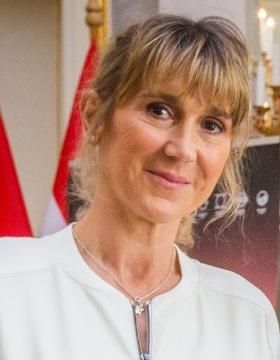
– How did you start fencing then?
– I've never had a good relationship with balls. My mother is a Nedeczky girl, though we are distantly related to the fencing family, I am also left-handed, so we came up with the idea to try fencing.
– So, you weren't fighting against sports, but swimming?
– I wasn't a lazy kid, I just wasn't interested in swimming. I respect the swimmers who are able to do this monotonous work day after day. I didn't know much about fencing, but I was curious. We were at Vasas first, and when we were looking for the fencing coach, they said he was outside making the youngsters run. When I saw it and heard that the last three kids had to run the distance again, I told my mom there was no problem with fencing, let's try it, but not with this coach. We got on tram number 56, and at Nyúl utca, my older sister's classmates got on, and they fenced at BSE. By the time we reached Moszkva tér, we had decided to go back to Városmajor.
– It's a bit like a fairytale.
– Indeed. I was in a very good place, in an excellent environment. When we started going to competitions, I got into the top eight pretty quickly, and you get a medal in this sport for this which was very attracting to me. Even then, I had the skills to fight, and I always wanted to defeat the other.
– Tímea Nagy described you as a stubborn fencer. What does that mean?
– Maybe that I never gave myself away easily on the piste, I really always did everything I could to win. In Honvéd, I fought together with Titi. Just for a single touch, just to stab each other, we were able to work tenaciously for up to fifteen minutes – we found ourselves through each other.
– And the two-time Olympic champion also said that in Athens she might not have been able to defend her title if it wasn't for you.-
– Oh, I'm really moved by this, I've got goosebumps. I have often said that I owe everything to Tímea Nagy and the generation that fenced in Honvéd and the national team at that time: besides Tímea Nagy, Hajnalka Király, Gyöngyi Szalay, Ildikó Mincza-Nébald, Hajnalka Tóth or even Adrienn Hormay, with whom I sweated blood at every single national team training session – for a long time, the experience of success was that after a 15-3 defeat I lost to one of them only 15-4. That's how I moved forward, I always got a touch closer to them. If it wasn't for them, I really wouldn't have gotten to the level I ended up at.
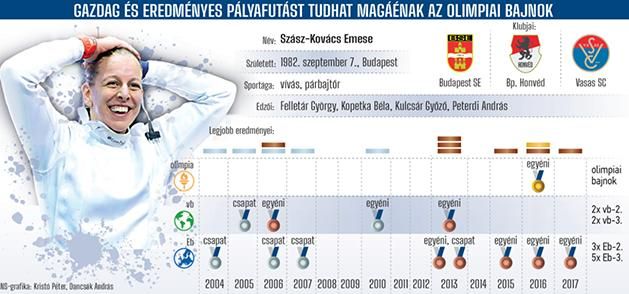
– Perhaps fencing with the boys during preparation also helped you a lot.
– This has undoubtedly contributed a lot to my development. It was always a great honor that I was able to do bouts with, for example, Géza Imre, who was known for not liking to fence with girls, but I also often went up against Gábor Boczkó. But when you lose to a guy, you shrug your shoulders and you keep going, after all, it's in the cards. However, with the girls, there's always a real prestige fight going on between us in training, and that's what really laid the groundwork for me. Because in that women's épée environment, no one ever wanted to lose during practice either.
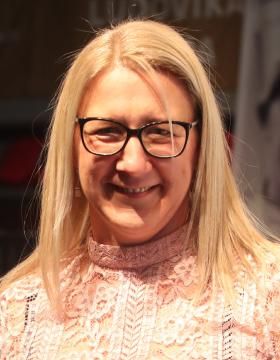
– Among them, however, were you the young, up-and-coming fencer. Were you shy?
– Maybe yes. A few people know about me that I used to be basically not an open person. What people see me as now is the exact opposite of my childhood. Until the age of four or five years old, I didn't talk to anyone but my family members, I started talking to one of our neighbors, an older man, and even as a teenager, I was more of a reclusive girl.
– What made you open up?
– The environment I lived in. I found the people I dared to be open up to, but it only developed gradually.
– I don't think so, maybe some cartilage at most...
– Shortly before the birth of your twins, you told our portal that you had not had a career of triumphs that were steadfast, that falling flat gave you the strength, the high concentration so that everything would work out at the Rio Olympics. Did you never want to stop after failures, in the midst of hardship?
– I said it twice that I would stop, but I only really meant it after the unsuccessful London Olympics.
– Then Győző Kulcsár and two of your fellow fencers convinced you to hold on until the 2013 World Championships in Budapest, where you won a bronze medal. But what was the other time?
– It was in the early 2000s: Győző Kulcsár became my coach, and it was because of him that I thought about retiring. The beginning of our work together was terribly difficult, I just felt helpless and doubted if I could do this...
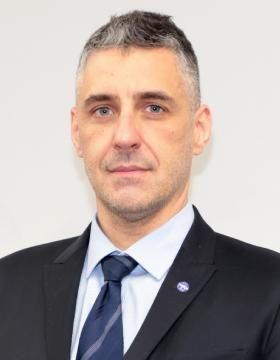
– And you said it for the third time a week and a half ago. Is this the final farewell?
– Yes, that's for sure.
– But after the tears that accompanied your announcement, you are able to smile.
– Because I've been thinking about this decision for quite some time, and I've been saying it to a small circle of people. But when one presents it to the world, such a decision becomes final. When I said it was over, I was overwhelmed with emotions: I realized that the world in which I was Emese Szász, then Emese Szász-Kovács, an athlete and fencer, is now over. The present tense is gone, so I have to get used to it – it's certainly a grieving process at some point because I'm closing a phase of my life. I know I made the decision, but it's over after all, and it can stir up emotions in people...
– You made your last appearance in the team competition of the Hungarian Fencing Championships. At the end of the day, you packed your fencing equipment in your bag – what will happen with it?
– I'm keeping it. I don't think I'm never going to wear it again, because, on the one hand, my nieces will certainly nag me to fence with them, and on the other hand, I have a plan with it – just not in competition, and not as a national team athlete.
– Although you will be a former athlete, a former fencer after your retirement, you will remain an Olympic champion for the rest of your life.
– One would like to live in a way that sets an example not only by the performance they do on the piste but also of other areas of their lives. I don't want to impose anything on myself that isn't true: I just give myself in every situation. I truly believe that I can set an example with that, too.
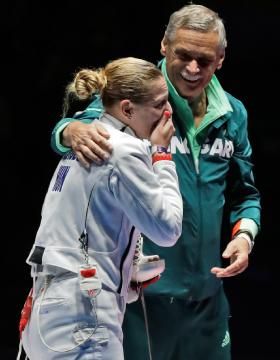
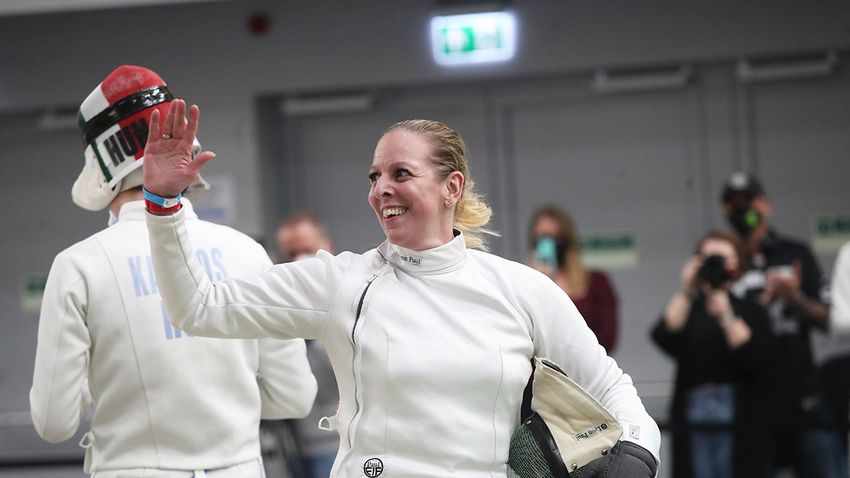
Vívó ob: Szász-Kovács Emese búcsúja (Fotók: Tumbász Hédi)
Translated by Vanda Orosz.
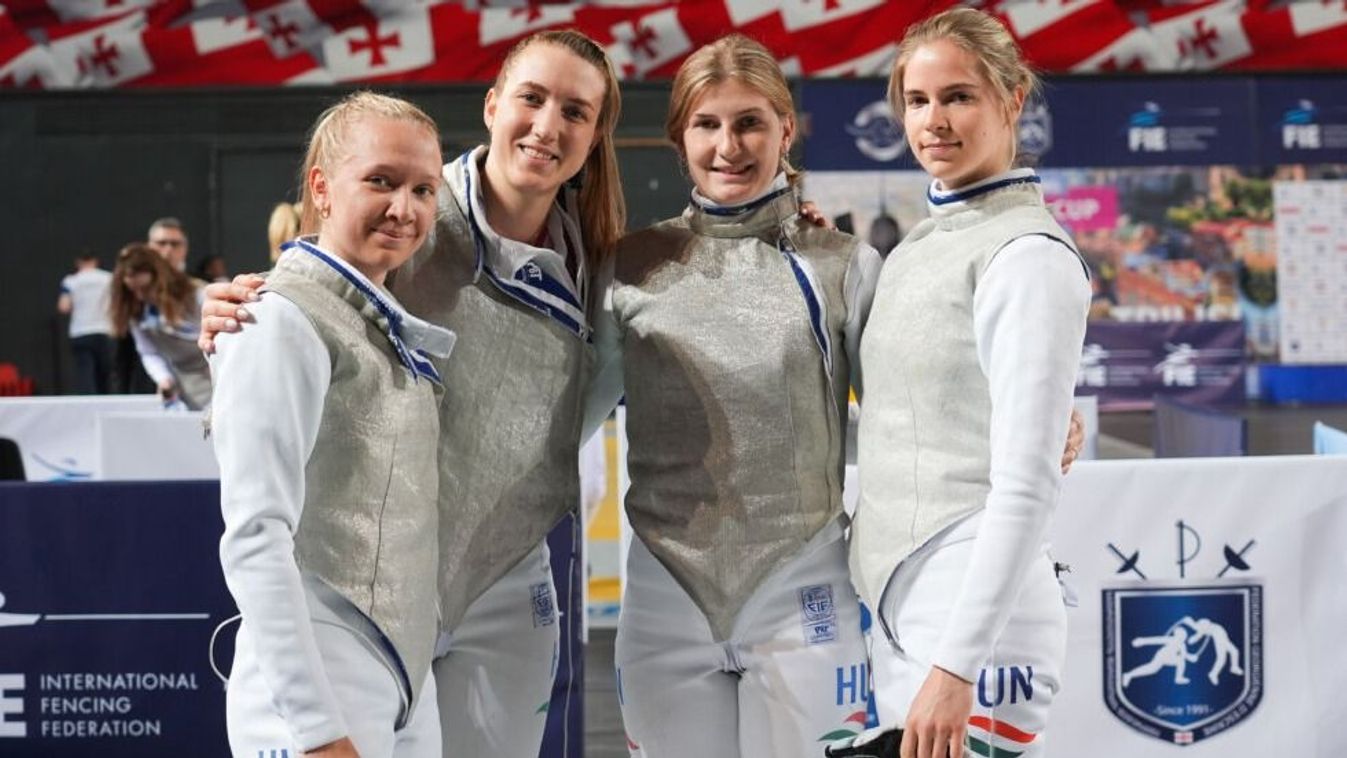
Vívás: ötödik a női tőrcsapat a tbiliszi vk-n
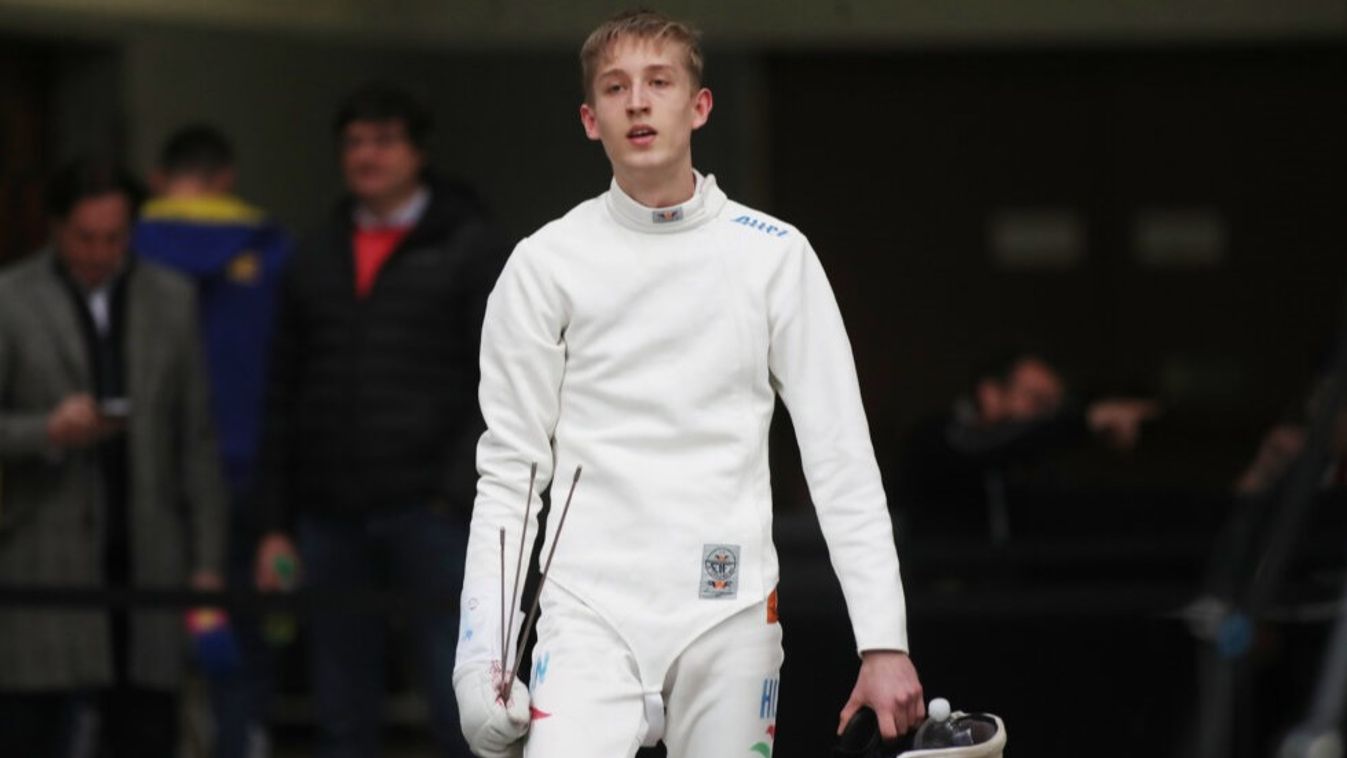
Vívás: Somody Soma a férfi párbajtőr MK győztese
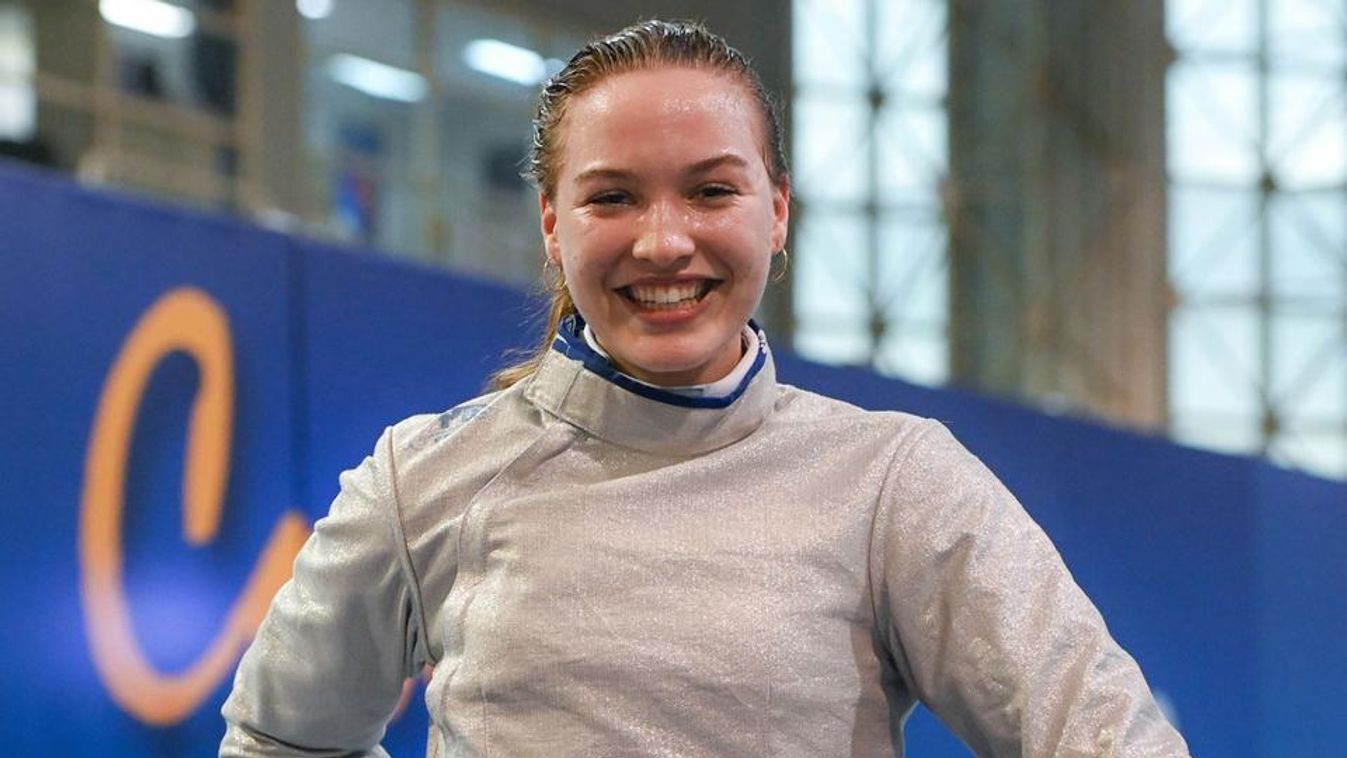
Vívás: Battai és Rabb nyerte meg az MK-fordulót
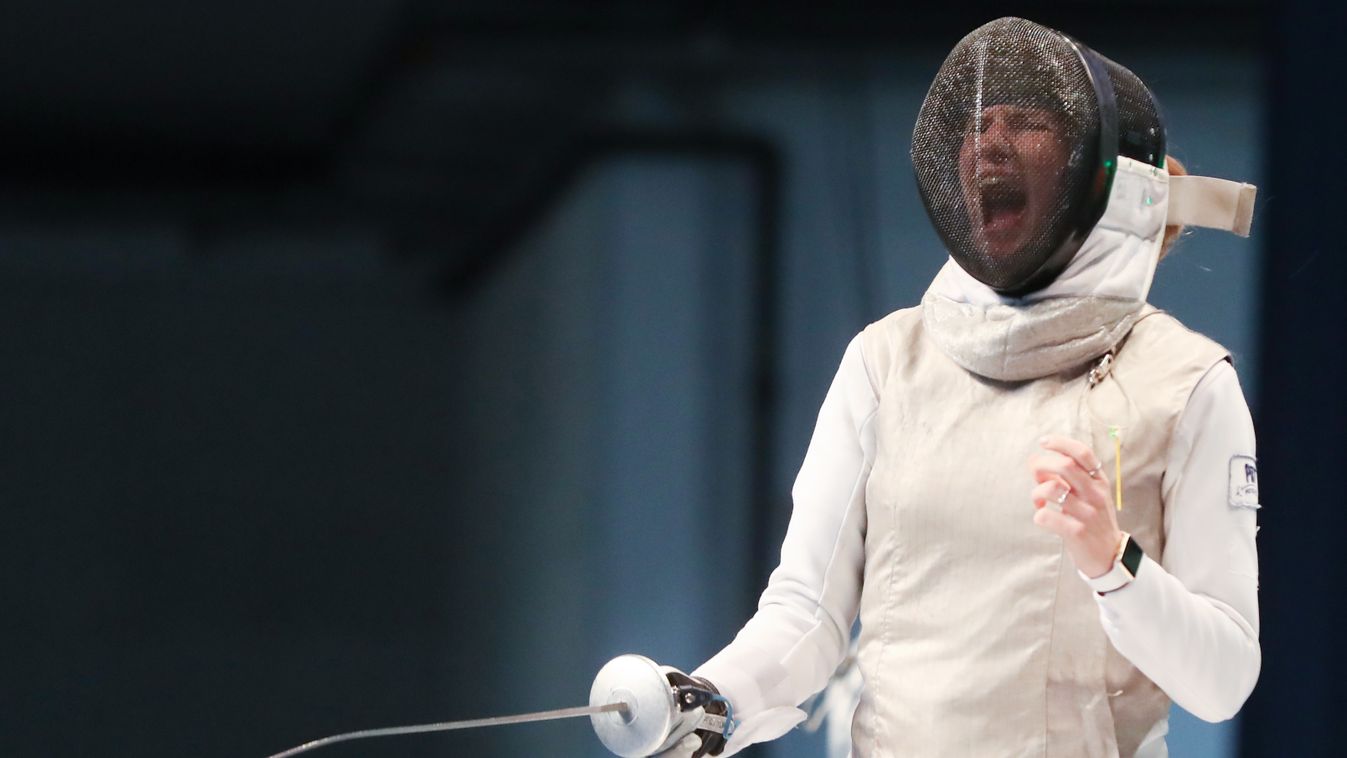
Vívás: Pásztor Flóra a nyolcaddöntőig jutott Tbilisziben
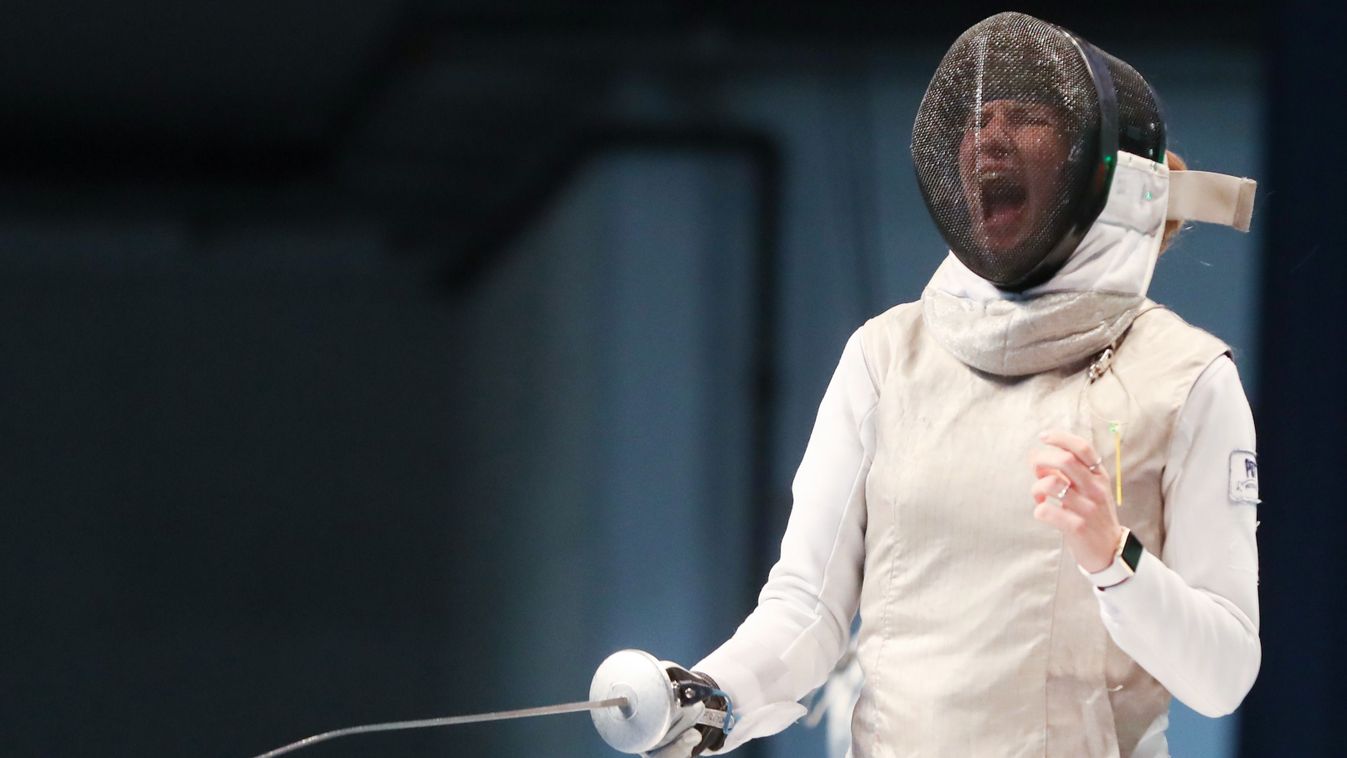
Vívás: két női tőrözőnk a tbiliszi vk főtábláján

Itt az izraeli bejelentés, minden megváltozik

Itt van Oroszország döbbenetes válasza az atomfenyegetésre

Szülinapos: hatéves lett Lajos herceg. Tündéri, mivel készült neki Katalin hercegné – Galéria

Videó: kétszer is landolt Magyarországon a világ legnagyobb repülőgépe – rejtélyes katonai szállítmányt hozhatott

Mennyire vagy művelt? 10 emberből 9 nem tudja ezeknek a szavaknak a jelentését

Beindult a mémgyár Magyar Péter airsoftos benézése után

Zelenszkij ezzel a gátlástalan trükkel akarja kirobbantani a harmadik világháborút

Egy volt magyar sportdiplomata neve is felbukkant a legújabb kínai úszó-doppingbotrányban

Nyílt titok, hogy a Gazpromról van szó – megnevezték a Fradi új szponzorjelöltjét

Papp Áron góljára nem volt válasza az ETO-nak, amely nem tudta kihasználni a Vasas botlását
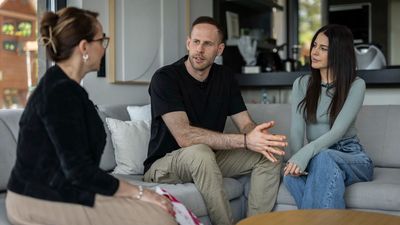
Gulácsi Péter: Úgy nézett ki a combom, mint a felkarom, sokszor azt hittem, innen nincs visszaút


